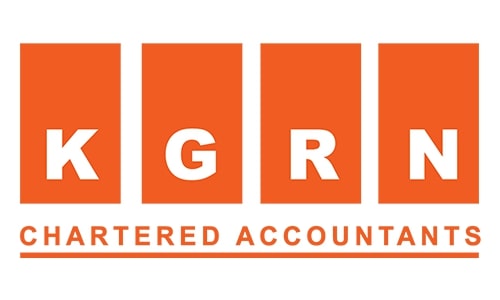In this article, you will learn how to compare accounting earnings and taxable profits. The corporation tax highlighted the distinction between accounting earnings and taxable profits, and the corporate tax primarily applies to taxable profits under certain conditions. Accounting profits are determined using the accrual basis of accounting, as opposed to taxable profits, which are computed using both the accrual and cash bases of accounting.
IFRS or Generally Accepted Accounting Principles (GAAP) are used to determine accounting profits, while taxable profits are estimated in line with the relevant corporate tax rules and regulations.
Profit disparities arise as a result of the differences between the criteria for computing profits under IFRS and GAAP and the base stated in corporate tax legislation. The following profit disparities result from the differences between the principles and rules for computing profits:
- Difference in the long run
- Differentiation in the short term
Permanent disparities, as the name implies, are inequalities that persist over time and have an impact on one period or period of time but have no effect on subsequent periods or periods of time. Items that will have a long-term impact are permitted by one administration but rejected by the next.
A similar situation could arise in which identical items are recognised under IFRS and GAAP but not under corporate tax legislation, and vice versa. Dividends, capital gains, fines, and penalties are all examples of this type of thing.
According to a news release released by the Ministry of Finance of the United Arab Emirates, dividends and capital gains are considered accounting income, however they are not subject to taxation. Therefore, accounting profits would be larger than taxable profits during the period in which dividends and/or capital gains are included in accounting income.
Fines and penalties, on the other hand, have a tendency to have a long-lasting effect. In order to calculate accounting profits, fines and penalties are recorded as costs, despite the fact that the Law does not always recognise them as legitimate expenditures.
Because of these discrepancies in accounting rules, accounting earnings for the relevant period would be lower than taxable profits for the same period in the same year.
Temporary inequalities, as the name implies, are disparities that only last for a short period of time before disappearing. This implies that certain transactions may generate inconsistencies in one period, which will be offset in succeeding periods/periods as a result of subsequent transactions.
Both administrations are aware of the causes that contribute to transitory volatility, but their approaches to dealing with these variables vary. When it comes to accounting expenses, depreciation is one example.
Depreciation is often permissible under corporate tax laws, albeit the rate and/or method of depreciation may differ from administration to administration. Straight-line depreciation is often employed by tax authorities, and the International Financial Reporting Standards (IFRS) demand the same or a reduced balance approach.
These realities may lead to a divergence in consumption patterns between those required by IFRS and those seen in practise, but from the viewpoint of tax authorities, both techniques would result in about the same amount of depreciation over time, regardless of the pattern of consumption.
Temporary deviations may also be categorised into the following categories:
- Short-term disparities that are deductible
- Temporary discrepancies that are taxable
If the relevant legislation resulted in greater taxable earnings in one period, companies would be obligated to pay more tax in that period, which would be changed in subsequent periods/periods if the corresponding legislation resulted in lower taxable profits in one period. As a layperson would put it, this is owing to the deductibility of transient variations.
A deferred tax asset would be created in the company’s records as a result of such discrepancies between the two scenarios. Deferred revenue, warranties, bad debt provisions, and other things that result in deductible transitory differences are examples of these types of items.
Because advances in the UAE are not subject to corporation tax, there will be no variations in deferred income; nevertheless, other expenses such as bad debt provisions, warranties, and other similar items will result in deductible temporary deviations.
Tax Advisor Dubai – Optimize Your Taxes Today!
Professional tax advisors in Dubai offering strategic tax solutions, risk management, and regulatory compliance for businesses and individuals. We help you identify tax-saving opportunities and mitigate risks effectively. Contact us now to optimize your taxes!
Companies, for example, record bad debt provisions as a cost, but tax authorities often see them as an expense until the liabilities have been discharged from the books. In a similar vein, corporations often include warranty clauses in their contracts, but the tax authorities consider them to be fair charges when the expenditure is actually spent.
In the current period, companies with taxable transitory differences pay less tax than they would otherwise, and they must pay more tax in future periods/periods. For the layperson, taxable temporary discrepancies are inconsistencies that cause taxable gains to be lowered for the present period.
Taxable transitory changes result in a tax burden that is delayed for a period of time. This is used to allude to a future obligation that has been postponed for any reason. Paying in advance is a well-known illustration of this kind of agreement.
According to the relevant International Financial Reporting Standards, corporations report prepayments as an asset and amortise them over time. Thus, a part of prepayments is recorded as an expenditure in the accounting record each year, even though tax authorities often accept the whole amount as an expense when the payments are made.
It is important to note that the information provided above is based on global practises, and that once the UAE government has implemented the Corporate Law, we will have a complete understanding of the items that may cause permanent and temporary deviations, and we will keep you informed as events unfold.
In the United Arab Emirates, you may start your company with no taxes. Get assistance from an industry expert.







